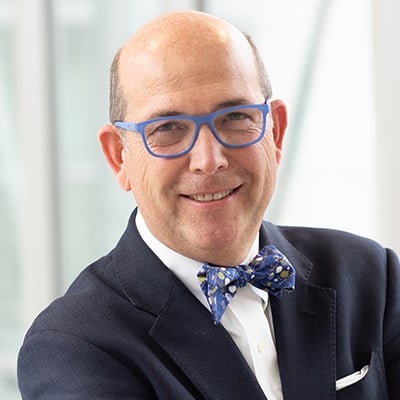

“We are working on getting the financial services industry to be a catalyst for change on how we think about longevity,” said Joseph F. Coughlin, founder and director of the MIT AgeLab, which researches trends related to aging and helps organizations develop innovations in what he has dubbed the “longevity economy.”
Mr. Coughlin’s involvement with the financial services industry came about when he realized that it could serve as the lynchpin in changing societal attitudes to aging.
“There’s been a fundamental flaw in how we approach planning,” he said. “Retirement planning should be more about navigating longevity, beyond money.”
The difficulty people have in planning or saving enough for retirement is not because they lack financial literacy or need to buy the latest TV, but because it is very difficult for them to visualize their future selves, he said; they are saving for the most ambiguous thing they will ever buy.
Accordingly, advisers need to change the focus of conversations from purely financial to helping clients manage the ambiguity, big decisions, complexity and end-of-life issues of life planning.
“You never associate creativity, design or stories with financial services,” Mr. Coughlin said. “The industry does a good job talking about complexity and quantitative matters, but when we talk to people about retirement, we need to change the narrative to appeal to their heads and hearts, and help them design their own later lives.”
Society also needs to write a new story about retirement, he said — one that does not view aging with negativity and dread, nor see older people as having less value.
In fact, people over 50 are a tremendous economic force, controlling 83% of U.S. household wealth, Mr. Coughlin said.
“It’s tragic for us to throw away the knowledge, creativity and experience older people offer,” he said. “They’re the largest emerging market hiding in plain sight.”

A Texas-based bank selects Raymond James for a $605 million program, while an OSJ with Osaic lures a storied institution in Ohio from LPL.

The Treasury Secretary's suggestion that Trump Savings Accounts could be used as a "backdoor" drew sharp criticisms from AARP and Democratic lawmakers.

Changes in legislation or additional laws historically have created opportunities for the alternative investment marketplace to expand.

Wealth managers highlight strategies for clients trying to retire before 65 without running out of money.

Shares of the online brokerage jumped as it reported a surge in trading, counting crypto transactions, though analysts remained largely unmoved.
Orion's Tom Wilson on delivering coordinated, high-touch service in a world where returns alone no longer set you apart.
Barely a decade old, registered index-linked annuities have quickly surged in popularity, thanks to their unique blend of protection and growth potential—an appealing option for investors looking to chart a steadier course through today's choppy market waters, says Myles Lambert, Brighthouse Financial.
